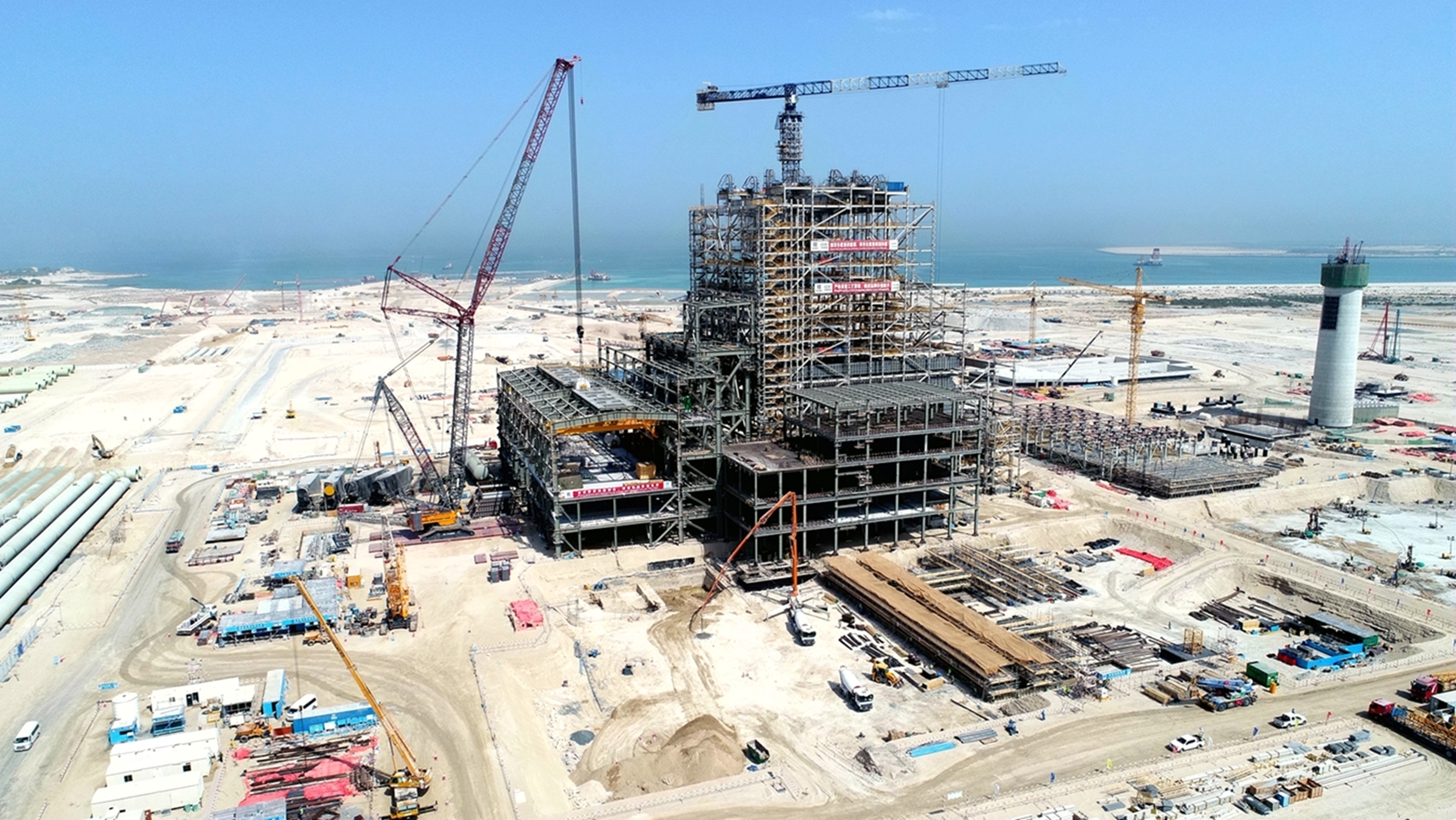
Aerial photo taken on June 19, 2018 shows the construction site of the Hassyan Clean Coal project in Dubai, the United Arab Emirates. (Xinhua/Hassyan Energy)
In sharp contrast to the self-serving policies of some Western countries which have sown seeds of hatred, rivalries and conflicts in the Middle East, China offers an alternative for resolving the regional challenges, which advocates seeking peace through jointly promoting dialogue and economic development.
CAIRO, Sept. 5 (Xinhua) -- The fourth China-Arab States Expo kicked off Thursday, offering a good opportunity for the two sides to reflect on their fruitful cooperation and solidify their strategic partnership that benefits both sides and the whole world.
The expo, slated for Sept. 5-8 in Yinchuan, capital city of northwest China's Ningxia Hui Autonomous Region, will be attended by officials and entrepreneurs from China and more than 20 Arab countries.
Themed "New Opportunity, New Future," the event will witness the signing of a number of trade and investment deals that will give a further boost to China-Arab cooperation.
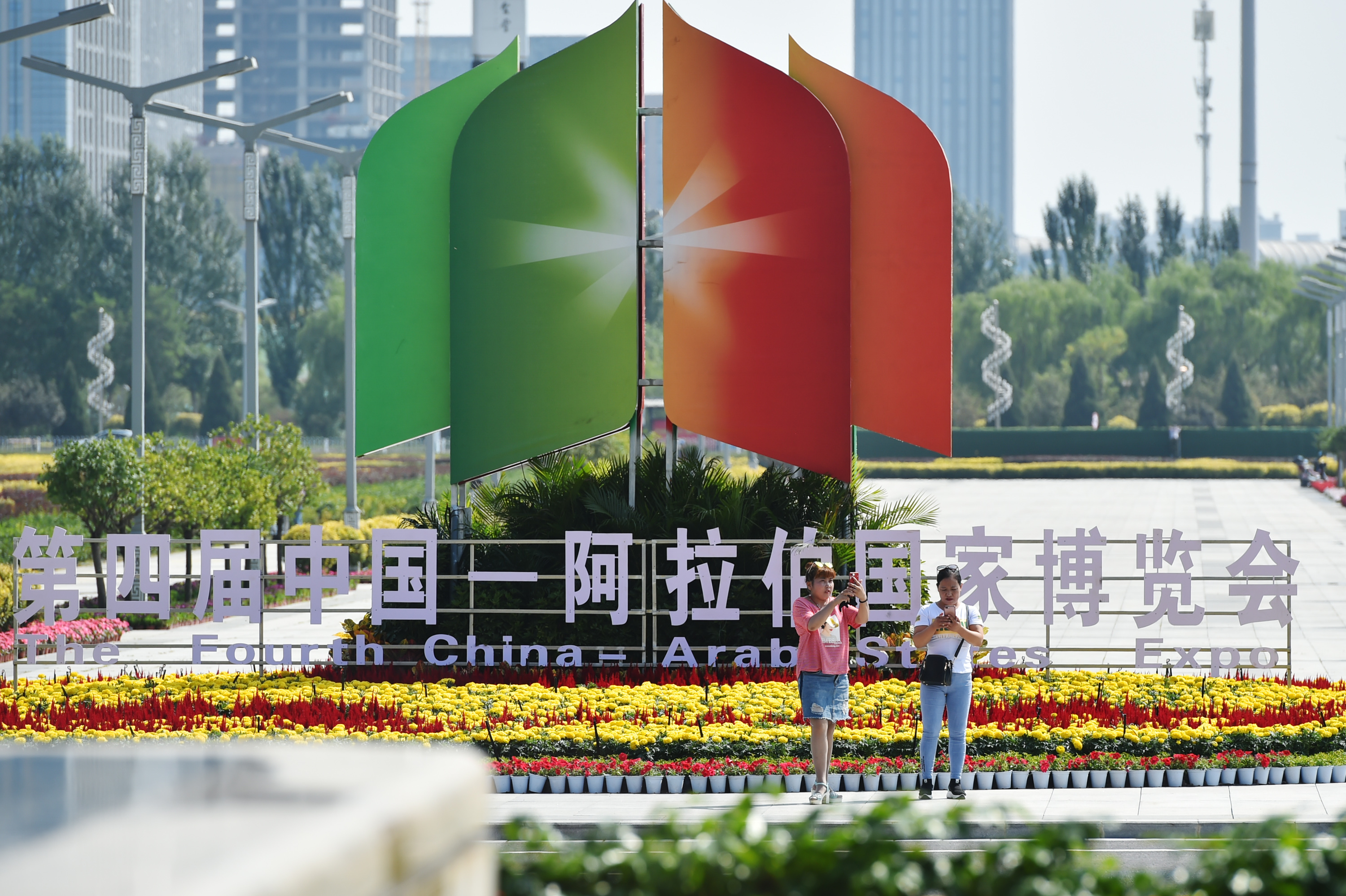
Two people take photos in front the emblem of the fourth China-Arab States Expo in Yinchuan, capital city of northwest China's Ningxia Hui Autonomous Region, Sept. 4, 2019. (Xinhua/Li Mangmang)
The expo is part of the efforts by China and Arab states to build a future-oriented strategic partnership of comprehensive cooperation and common development, which taps the full potential of strengthening their win-win cooperation in various fields, promoting peace and development in the Middle East, and enhancing mutual support on the global stage.
The fast-growing China-Arab ties are based on solid ground, as the two sides share common dreams for national rejuvenation. Under the guidance of Chinese President Xi Jinping, who called for building a China-Arab community with a shared future, China and Arab states have ushered in a new phase of strengthening bilateral cooperation.
In 2013, Xi proposed the Belt and Road Initiative (BRI), which aims to build a trade and infrastructure network connecting Asia with Africa and Europe along the trade routes of the ancient Silk Road that used to link China with the Arab world and beyond.
In 2018, the Chinese leader urged the two sides to build a future-oriented strategic partnership of comprehensive cooperation and common development through boosting BRI cooperation.
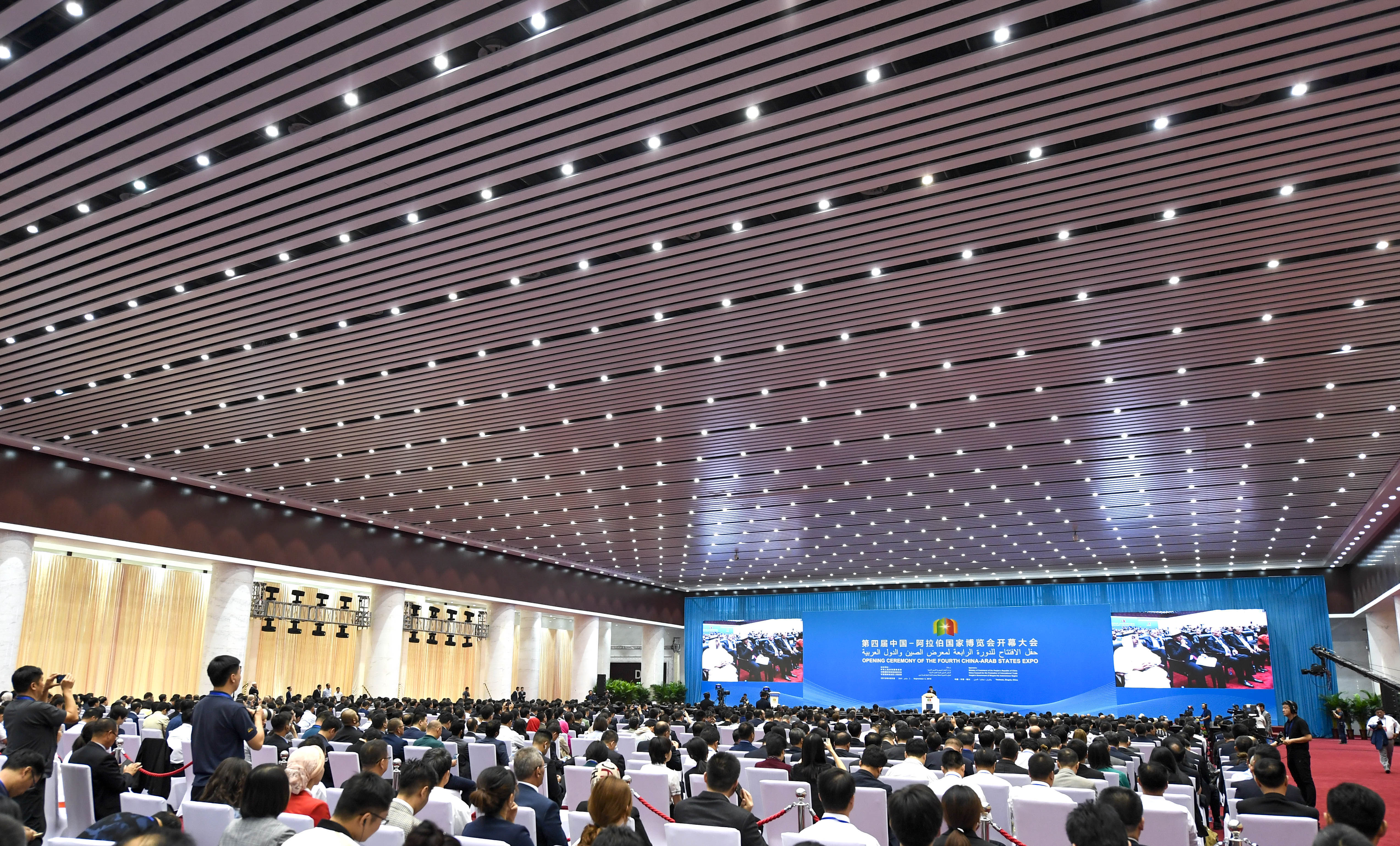
The fourth China-Arab States Expo opens in Yinchuan, capital of northwest China's Ningxia Hui Autonomous Region, Sept. 5, 2019. (Xinhua/Feng Kaihua)
The Chinese initiative created new opportunities for Arab states, as the Middle East serves as a BRI hub due to its unique geographical location that connects the three continents of Asia, Africa and Europe.
The Arab world welcomes the BRI with open arms, with a total of 18 Arab countries having signed BRI cooperation documents with China. This is largely because the BRI complements the Arab economic renewal plans perfectly, including the Saudi Vision 2030, Kuwait Vision 2035 and Abu Dhabi Economic Vision 2030, which aim to diversify the Arab countries' economies and achieve sustainable development.
The China-Arab BRI cooperation has already yielded tangible results, with China remarkably stepping up its investment in and aid to the Middle East. Trade between China and Arab states hit 244.3 billion U.S. dollars in 2018, a 28-percent increase from 2017, while Chinese direct investment in Arab countries totaled 1.2 billion dollars.
A number of BRI projects are under construction in the region. Chinese companies are building the central business district for the new Egyptian administrative capital in the country, the Hassyan clean coal power plant in Dubai, and the Noor Complex -- the world's largest concentrated solar power plant -- in Morocco.
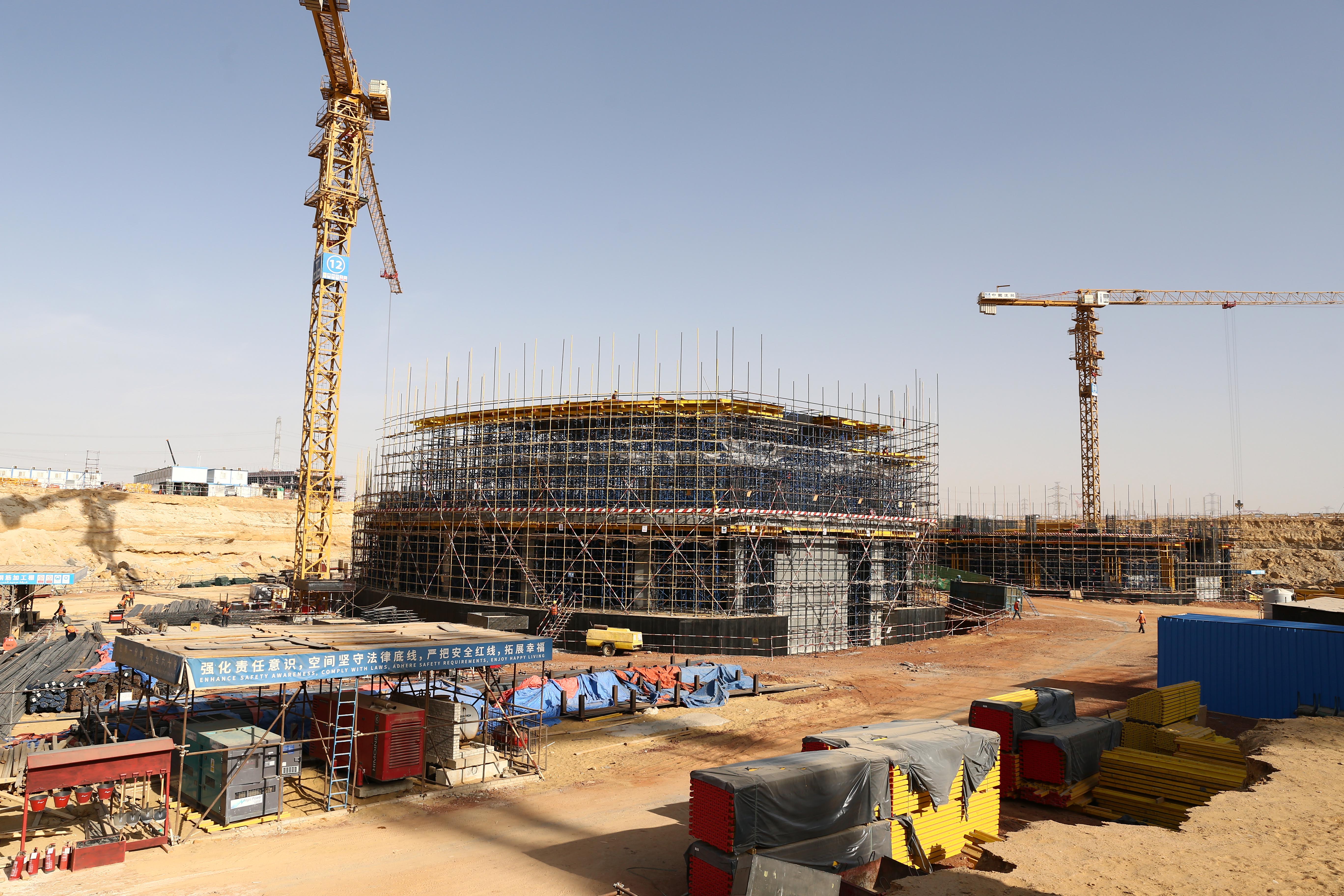
Photo taken on June 1, 2019 shows the construction site of China State Construction Engineering Corporation (CSCEC)'s Central Business District (CBD) project in Egypt's New Administrative Capital, about 50 kilometers east of Cairo. (Xinhua/Ahmed Gomaa)
The China-made BeiDou navigation satellite system has also been applied in Tunisia, Algeria, Kuwait and Sudan in areas such as precision agriculture, telecommunication, and maritime monitoring.
For those Arab countries still mired in civil wars, or poverty, China has been making great efforts to provide generous humanitarian aid and support to their peace endeavors and reconstruction process.
In sharp contrast to the self-serving policies of some Western countries which have sown seeds of hatred, rivalries and conflicts in the Middle East, China offers an alternative for resolving the regional challenges, which advocates seeking peace through jointly promoting dialogue and economic development.
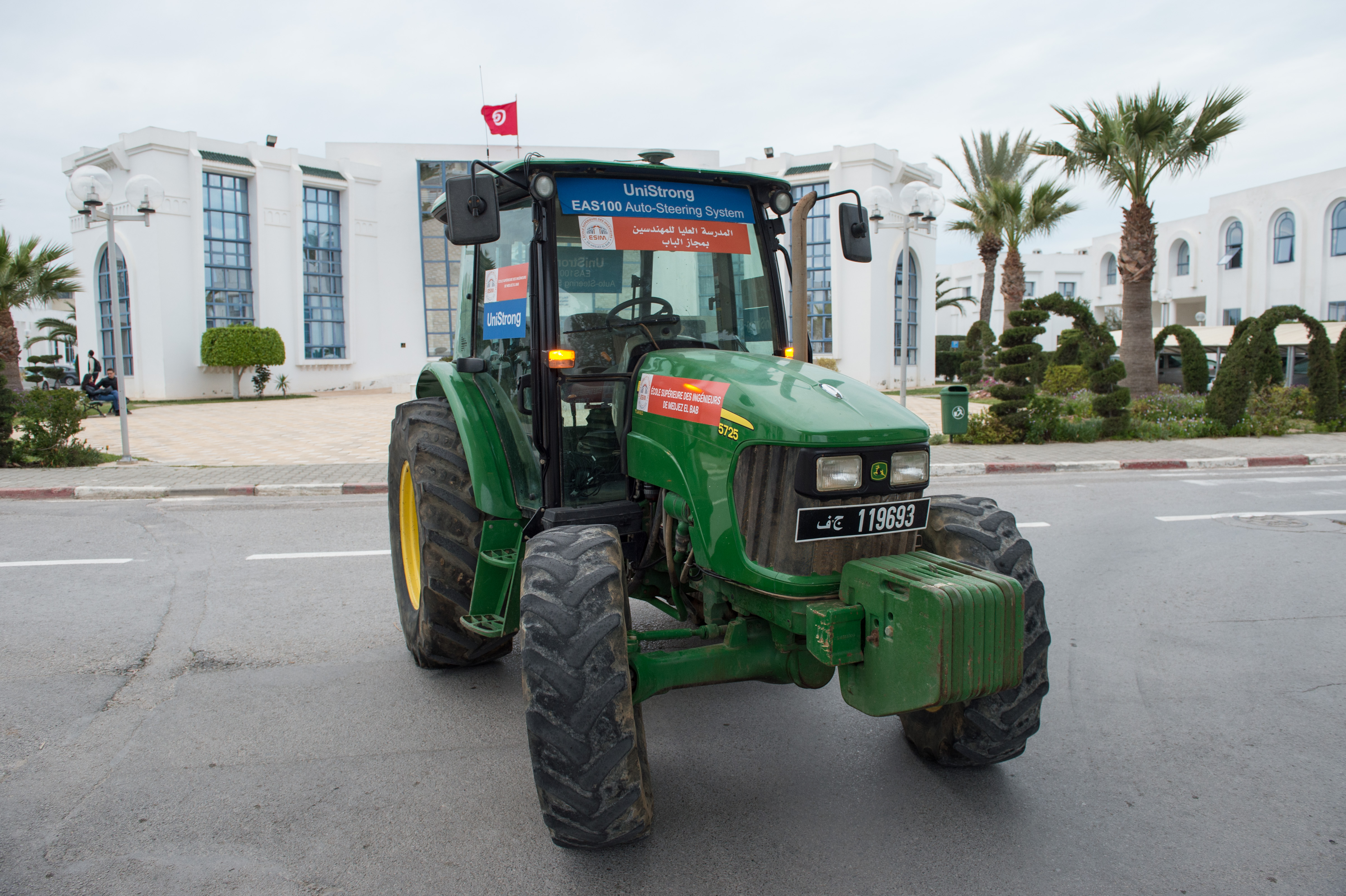
A self-driving tractor equipped with the BeiDou Navigation Satellite System (BDS) runs along the planned routes through remote control during the second China-Arab States BDS Cooperation Forum in Tunis, capital of Tunisia, April 1, 2019. (Xinhua/Meng Tao)
China, with its tremendous achievements in economic development and poverty alleviation in the past decades, is also ready to share its experience and expertise with Arab countries.
More importantly, China and the Arab world earnestly need each other's help in tackling the rising threats of extremism and terrorism.
Based on shared interests and dreams, the China-Arab strategic partnership is destined to last and grow.



